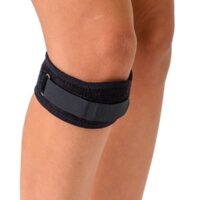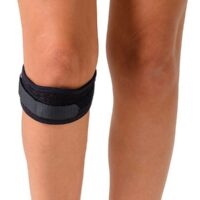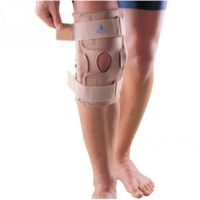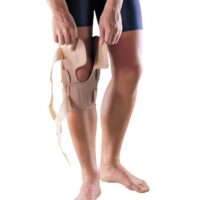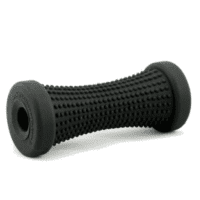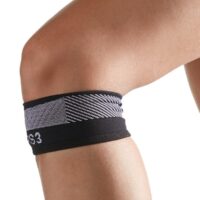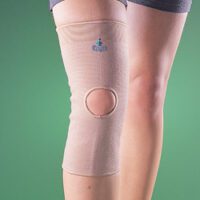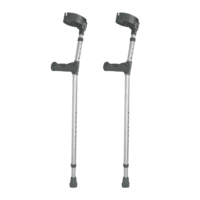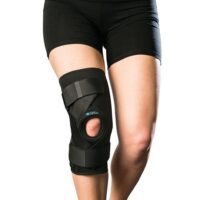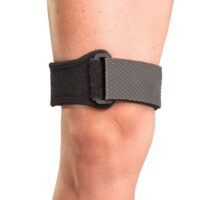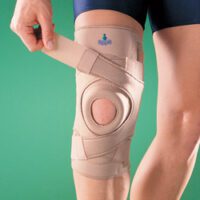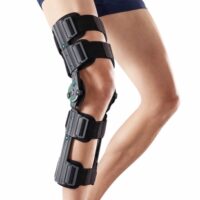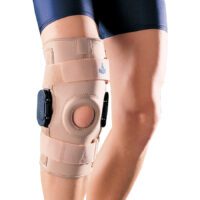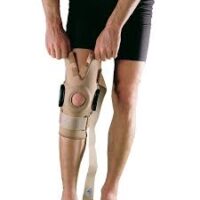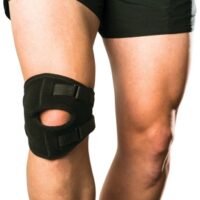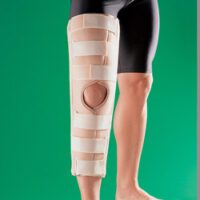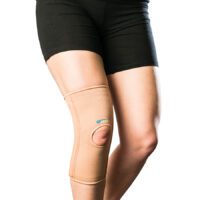Clicking Knee? Is it a Sign of Danger?
Hearing your knee click as you walk or during exercise can be disconcerting. Many of us wonder if these sounds are a harbinger of issues lurking beneath the surface. Let’s discuss what causes knee clicking and when it signals a problem.
Demystifying Knee Clicking
Several factors can lead to your knee making noises. Some are benign, while others warrant attention.
1. Physiological Noises: The Harmless Clicks
Often, the clicking you hear is just your body talking. These physiological noises occur when tendons or bones in your knee glide over each other. They’re normal and shouldn’t cause pain or swelling.
2. Meniscus Tears: The Painful Click
A more concerning cause is a meniscus tear. This cartilage in your knee can tear suddenly from an injury or gradually from wear and tear. Symptoms include painful clicking, swelling, and difficulty moving your knee.
Read more: Meniscal Injuries
3. Knee Arthritis: The Grating Sound
Arthritis in the knee can also produce clicking or grating sounds, known as crepitus. While these sounds don’t always correlate with pain levels, they can indicate the onset of arthritis in the knee and kneecap joints.
Read more: Knee Osteoarthritis
4. Kneecap Clicking: A Closer Look
Kneecap (patellar) clicking is a specific type of knee noise that often arises from the kneecap not tracking properly over the thigh bone. This misalignment can lead to discomfort and a noticeable click or pop as you move.
Read more: Patellofemoral Pain Syndrome

When to Seek Help
Painful clicking, especially if accompanied by swelling, is a red flag. It’s crucial to consult a physiotherapist or GP promptly. Even if the clicking is painless, getting it checked out can prevent future issues.
Effective Strategies Against Knee Clicking
Research supports knee exercises as an effective way to manage knee clicking. Strengthening and loosening the knee through specific exercises can enhance joint control and alignment, reducing the incidence of clicking.
Engage with Your Physiotherapist
An assessment and tailored exercise regimen from a physiotherapist can maintain your knee’s health. Strengthening surrounding muscles aids in shock absorption, while improving balance can prevent future injuries.
Conclusion: Heed Your Knees
Knee clicking isn’t always cause for alarm, but it’s important to listen to what your body is telling you. Recognising when to seek advice is essential for maintaining knee health and mobility.
What to Do? Professional Advice Is Key
If you’re concerned about knee clicking, consult a physiotherapist. They can offer guidance based on your specific symptoms and recommend the best course of action.
Must-Ask Questions for Your Physiotherapist
- How can I stop my knee clicking? Understanding the cause is the first step. Your physiotherapist can then recommend exercises or treatments to address the issue.
- When should I see a doctor for a knee click? If clicking is accompanied by pain, swelling, or mobility issues, it’s time to see a professional.
- How do you fix crunchy knees? A combination of exercises, possibly along with medical treatments, can alleviate most crunchy knees. Your physiotherapist will design a program suited to your condition.
- Should I be worried if my knee clicks? Clicking without other symptoms like pain or swelling is often harmless. However, a consultation can help ease your mind.
- Will knee clicking go away on its own? It can, especially if it’s due to physiological noise. But persistent or painful clicking needs professional assessment.
- What are 3 signs of a meniscus tear in the knee? Look out for pain, swelling, and a giving way sensation in your knee. These symptoms suggest a possible meniscus tear.
- Does a meniscus tear cause clicking? Yes, a meniscus tear can cause clicking, often accompanied by pain and swelling.
Engaging with New Research
Recent studies highlight the importance of knee health in preventing osteoarthritis and other long-term conditions. A study published in the Journal of Physiotherapy emphasises the role of regular, knee-specific exercises in mitigating symptoms like clicking and reducing the risk of arthritis. By focusing on knee strength and flexibility, individuals can maintain healthier joints well into the future.
Seeking Professional Insight
If knee noises concern you, or if you’re experiencing discomfort, seeking the advice of a physiotherapist is a wise step. They can offer personalised advice and treatment plans, ensuring your knees remain healthy and strong.
Remember, your knees are vital to your mobility and quality of life. Listening to them and responding with care can keep you moving smoothly and pain-free for years to come.






